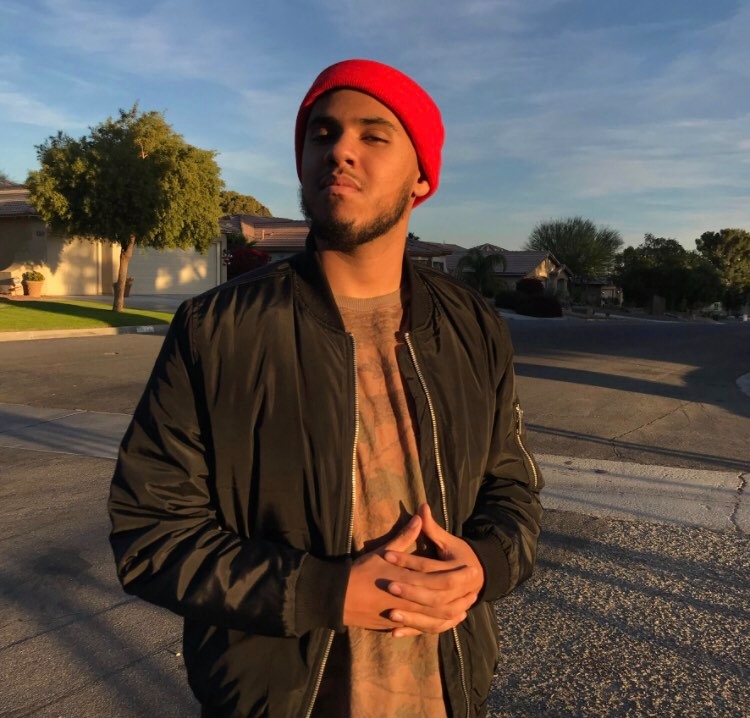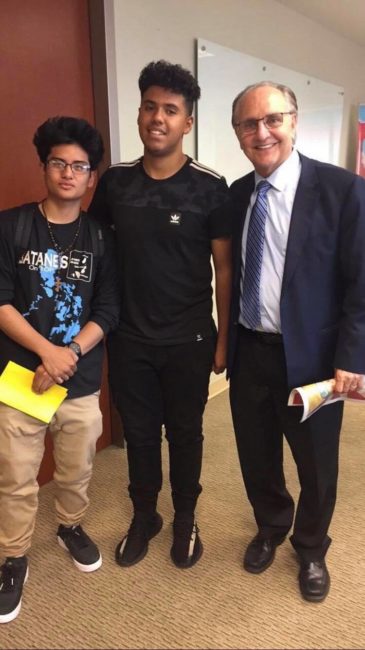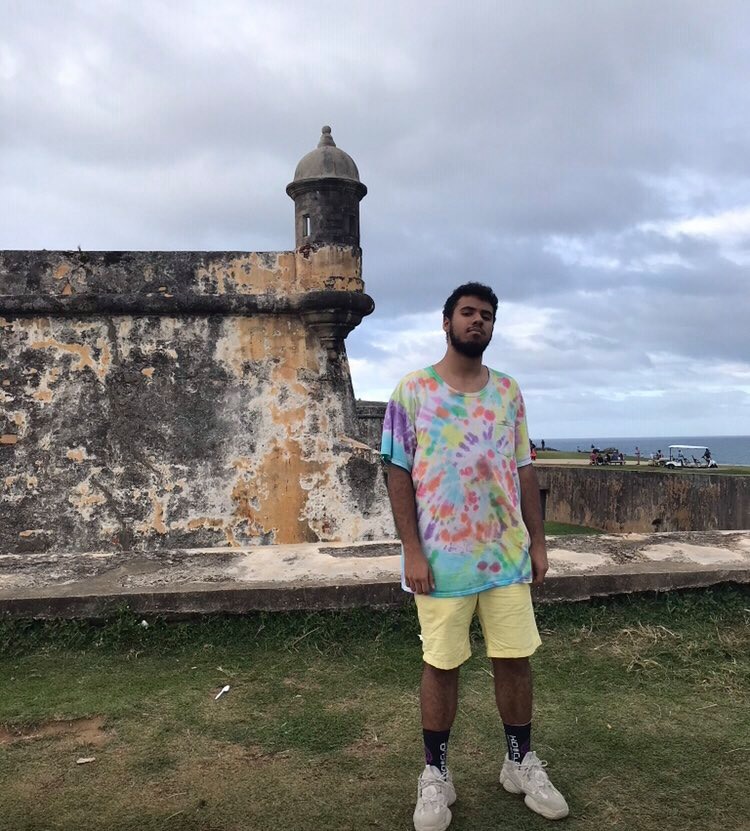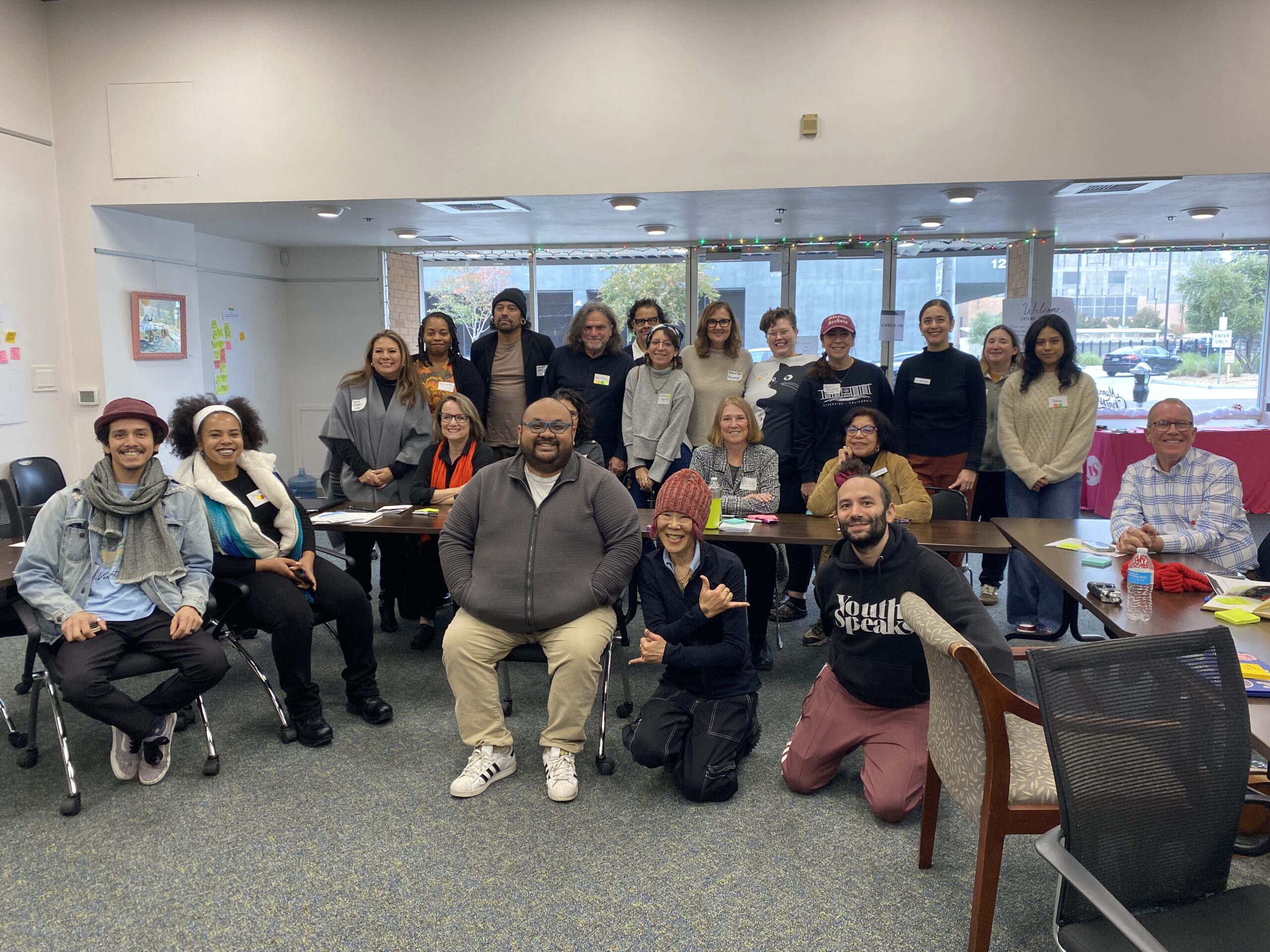
If there is one thing I feel like everyone knows about me, it is that I am a huge Kanye West fan. As in, I own two separate vinyl copies of My Beautiful Dark Twisted Fantasy. As in, I have spent upwards of a thousand dollars on Kanye West’s shoes and clothing. As in, I have been through it all from the Taylor Swift incident to the MAGA hat. As in, this isn’t the first time I’ve felt the need to write about the man.
Being a Kanye fan isn’t very easy. You often find yourself having to explain why you’re a Kanye fan. For me, it would simply be because, in my opinion, Kanye West is a MUSICAL (and only musical) genius; you could teach an entire course on music theory using just his discography.
His music and personality have become almost a staple in pop culture with the music and fashion world watching and imitating his every move for the better part of two decades now. His work incorporates influences from different styles and scenes of music throughout the world. His influence can be seen in many popular artists today including Drake, Beyoncé, Kid Cudi, Tyler the Creator, Travis Scott, Future, Rihanna, Lil Uzi Vert, Jaden Smith, the late Juice WRLD, as well as countless others. His influence could merit an article all its own.
This is not that article.
The purpose of this article is to express concern for, not a rapper, not a celebrity, not a presidential candidate, but a human being. To truly understand the rather tumultuous condition of Kanye, you must first understand Kanye himself.
Kanye Omari West was born on June 8, 1977, in Douglasville, Georgia, a suburb of Atlanta. At 3 years old, he moved to Chicago (as recounted on the Graduation track, “Homecoming”) after his parent’s divorce.
For most of his life, Kanye lived with his mother and visited his father in the summer where he would spend years making as many as five beats a day. Kanye began writing poetry at 5 years old, and later started rapping in the third grade. He eventually convinced his mother, Donda, a college English professor for whom his charity foundation and upcoming album are named after, to pay for studio time.
Kanye then graduated from Polaris High School in 1997 and received a scholarship to Chicago’s American University of Art, later transferring to Chicago State University where he majored in English. As the title of his debut album, The College Dropout implies however, he dropped out in order to fully pursue his true passion: music.
This naturally brought a lot of tension into his relationship with his mother, who was very passionate about education, but as we all know, things turned out quite well for young Kanye.
He produced for the local Chicago rap scene, using the first $8,000 he made off of selling beats to buy himself a chain. He was also part of a Chicago rap group called The Go-Getters, who released their only studio album titled World Record Holders in 1999. He would later produce for rap legends like Foxy Brown, Nas, Raekwon the Chef (of the Wu-Tang Clan), Goodie Mob, Ma$e, and Eminem. He even sent a demo tape to the Notorious B.I.G. But most importantly, he started producing for Jay-Z.
Jay-Z and his Roc-A-Fella team quickly took a liking to Kanye’s work ethic and style of production, yet weren’t fully confident in his ability as a rapper. Most of this story can be heard from the mouth of Kanye himself on the closing track of The College Dropout, “Last Call.”

The rise of Kanye represented a shift in hip-hop.
At the time, the game was filled with nothing but tough gangsta and mafioso personas such as 50 Cent, Jay-Z, and many many others, with a more lyrical and conscious underground scene with cats like Mos Def and Talib Kweli. Kanye represented a mixture of both.
Lyrically, he stayed pretty conscious with songs like “Jesus Walks” and “All Falls Down” but he wasn’t beyond making a simple club anthem such as the single “The New Workout Plan” and the aforementioned “Slow Jamz.” Kanye was just a regular guy with an amazing musical talent and he scored hit after hit after hit until achieving near omnipresence. He became one of the highest selling artists of this century as well as racking up 21 Grammy awards over his career – second only to Jay-Z’s 22.
But Kanye was no stranger to controversy.
In 2005 he stormed the stage (the first of many times) after losing the award for Best Music Video, in 2009 he was recorded angrily repeating “Give a black man a chance!” backstage after being snubbed for the Best New Artist award, and he famously (and accurately) declared that “George Bush doesn’t care about black people” after becoming emotional about the plight and mistreatment of black New Orleans residents during Hurricane Katrina.
Then came the year 2008. Kanye’s mother passed away due to complications from a breast reduction surgery (there is a California law named after his mother, signed by then-Governor Arnold Schwarzenegger and at one point he wanted to use a photo of the surgeon for an album cover) and his long-time fiancé Alexis Phifer left him.
Kanye went on tour almost immediately after these back to back traumatic events. He felt that he could not properly convey the emotions he was feeling at the time through rapping, which led him to create the classic 808’s and Heartbreak, an album that changed the sound of contemporary music across all genres even if the immediate response was polarizing, largely due to the lack of rapping and the abundance of autotune.
Then, the following year, Kanye is seen at the 2009 MTV Video Music Awards red carpet with a bottle of Hennessy in one hand and supermodel Amber Rose in the other. I don’t think I need to describe in too much detail what happened next, as, for better or worse, it became one of the most infamous moments in pop culture – and certainly in Kanye and Taylor Swift’s careers. It also effectively turned Kanye into a laughing stock and a target for an unfathomable, yet arguably well deserved, hatred from, well… pretty much everybody. From Comedy Central airing the ‘Fishsticks’ episode nonstop the day after the incident, to the flurry of angry social media posts, to Jay Leno asking him on live television, “What do you think she [his recently deceased mother] would have said about this [interrupting Taylor Swift on stage]?”
After that incident, and on advice from Mos Def, Kanye went into somewhat of a self-imposed exile where he would work on music, and even bring people coffee as an intern at Fendi. When he returned to the spotlight, he returned with what is considered by many to be one of the best albums of the last decade, My Beautiful Dark Twisted Fantasy. The lyrics to the final track of the album are actually a poem he wrote to his now-wife, Kim Kardashian. The two had been mutually flirting with each other since they met in 2007 and they have even alleged that they cheated on their respective partners at the time (Kris Humphries for Kim and Amber Rose for Kanye) with each other. Kanye even once said that the Watch the Throne tour (which he co-headlined with Jay-Z after the release of their joint album of the same name) was made as grandiose as it was in part to impress Kardashian.
He then went on to release two more successful albums through 2013 and started his own fashion line after leaving a deal with Nike who he was, to say the least, very unhappy with.
However, Kanye still experienced what he felt was a degree of discrimination, not just for being black, but for his celebrity reputation. One example came when Hedi Slimane (the creative director for Dior at the time and current creative director for Yves Saint Laurent), told him not to attend any more fashion shows, a trigger for one of his most angry and abrasive albums yet, Yeezus.
After Yeezus, Kanye began to settle into family life. He married Kim Kardashian in 2014, who he would have four children with, and began to focus more on his fashion line with his Yeezy shoes becoming one of the most coveted and defining cultural status symbols of this generation.
Then he returned in January 2016 with a very on-brand barrage of tweets yelling at Wiz Khalifa over misunderstanding an acronym, as well as announcing an album, The Life of Pablo.
The Life of Pablo was the very first album to ever go platinum without selling a single physical copy (it was officially released on streaming only) and it was widely praised by critics. Then came the Saint Pablo Tour, where the world laughed as he slowly unraveled night after night on stage. Each night he went off on rants that contained angry musings about Drake and radio play, as well as a bizarre endorsement of then-president-elect Donald Trump (despite donating $50,000 to the Hillary Clinton campaign that same year). The tour was canceled the day before I was supposed to see him as his family saw fit to institutionalize him.
Politically, up until recently, Kanye has shown himself to be very left-leaning on most issues, speaking up multiple times in his career against violence in his hometown of Chicago. He was one of the first in the mainstream hip hop community to ever speak up for the LGBTQIA+ community, urging his peers to stop using the homophobic “f” word in their music. He also joined Shakira and Rage Against the Machine in boycotting performances in Arizona due to the implementation of a 2010 law designed to discriminate against undocumented people. So the endorsement of Donald Trump came as a shock to the world.

I was heartbroken because this was a person I idolized and looked up to, a man who inspired me to create art of my own, a man whose music has brought me out of dark places more times than I care to mention. I love Kanye because I can connect with him. Not long after he revealed he suffered from bipolar disorder, I learned that myself, my father, and my biological grandfather all suffered from the same condition. I always felt that I could relate to his music in many aspects, so seeing him like this truly did hurt me.
It hurt even more when he doubled down on this in 2018, donning a rare flat brimmed MAGA hat (seriously, he’s the only one I’ve seen who has one with a flat brim – it’s kinda weird), endorsing Trump supporter and Black Lives Matter critic Candace Owens, claiming that he refused to take any medications he was prescribed (presumably for his mental illness), and announcing that he believed slavery was a choice as he yelled at a room full of very confused TMZ staff. Strangely, despite being aware that these incidents could be, and most likely are, connected to his mental health condition, Kanye was met with more ridicule than concern. It was disheartening to see because I thought we were at a point where it was okay to be open about your struggles.
Kanye had always been open in his music about depression, so why was he being held to a different standard than everyone else? He certainly isn’t the only celebrity to express support for Donald Trump (other examples include Tom Brady, Stacey Dash, Ted Nugent, Mike Tyson, Conor McGregor, and Dennis Rodman to name a few), and he’s not even the only rapper to express anti-abortion views, another example including GZA of Wu-Tang Clan. So why was he receiving so much more (well-deserved) criticism for this than anyone else I have ever seen?
In my opinion, the world has always loved to hate Kanye West. He went from being a cultural underdog to being a cultural antihero. Like the rap game’s version of Bakugo.
However, in collectively loving or hating him for whatever reason, I feel people have collectively forgotten that he too, is a human being with real emotions and real problems.
He isn’t exactly strapped for cash (recently becoming a billionaire after being $53 million in debt a mere four years earlier), but his struggles are evident. I think that all his antics over the years have been telltale signs of someone who is manic and we all simply ignored them because we thought it was just “Kanye being Kanye.” But it’s clear that Kanye needs help now more than ever with him coming to tears at his recent campaign rally and allegedly having issues with the Kardashian family. There seems to be very few people that are truly in Kanye’s corner.
Once upon a time, there was a black streamer/model/rapper from Brooklyn named Desmond Daniel Amofah, better known by his screen name, Etika. Etika was known for his over-the-top reactions to anime and music, as well as playing games such as Super Smash Bros, Doki Doki Literature Club, Undertale, and much more. Last year Etika too started acting rather erratically, posting very Kanye-esque rants on his social media accounts, as well as intentionally posting pornography on his YouTube account in a successful attempt to get it deleted. He threatened suicide numerous times. So how did his fans and the community as a whole react? It was mostly ridicule. There were many who were genuinely concerned for him, as there have been with Kanye, but even more, were deriding him for his struggles and even encouraging his suicide.
He was found dead on June 19, 2019. He committed suicide by jumping off of the Manhattan Bridge after posting a recorded video that effectively served as his suicide note. He was 29 years old.
This is a tragedy that could have been avoided long before it occurred had people recognized that he was suffering from mental illness and acted accordingly. I fear the same fate will befall Kanye. I see the same reaction to his outbursts, erratic behavior, and cries for help and it is truly sickening and painful to watch a group of people who claim to care about mental illness essentially munch on popcorn when a celebrity is going through a very public mental health crisis.
The same thing happened to Britney Spears in 2007 with the shaving of her head, a small part of a much darker issue, being widely mocked. The same happened to Lindsay Lohan who was portrayed by the media as nothing more than a promiscuous drug addict rather than a human being who needed help.
Why does our culture put people on a pedestal, claiming to love them for their talents or what have you, yet show the opposite of concern when it’s clear that the person is not okay? I don’t want Kanye to become another Etika and neither should you, regardless of your opinion of him and his music.
All this is to say that I believe that the popular toxic reaction to mental health struggles is a symptom of celebrity culture. Celebrity culture is defined as the high volume perpetuation of celebrities’ personal lives on a global scale. For example, reading about a famous actor’s breakup, or about a singer’s new baby, or paparazzi photos of new outfits, or in this case, a rapper’s struggle with bipolar disorder.
The culture of worshipping or hating a particular celebrity is extremely toxic because it puts them on an unwanted pedestal for the world and people often fail to account for their humanity. It is also harmful to the self-image of everyone else. A byproduct of celebrity culture is people being sad or angry that they don’t feel as beautiful or as talented as any given famous individual when they should just be happy to be themselves.
This comes from viewing celebrity culture as a form of escapism.
In 1956 doctors, Donald Horton and Richard Wohl introduced the terms parasocial interaction and parasocial relationship; the former refers to a psychological relationship between a character or often, celebrity, where the viewer comes to consider the subject as a friend despite having little or often no personal interaction with them at all. A parasocial interaction becomes a parasocial relationship when the illusion of intimacy or friendship exists.
The term ‘stan’ is the modern version of this psychological phenomenon, often it is used on social media in the context of intense love and/or support of any particular thing, but most commonly, a celebrity. However, it is often forgotten that the origin of this term was an Eminem song about a psychotic fan who formed a toxic parasocial relationship with an artist and ended up killing himself and his girlfriend due to a lack of acknowledgment. I believe there is a similar toxic parasocial relationship with Kanye and the public. This was created through the numerous controversies throughout his career that extend even farther than his, admittedly mostly white, fanbase to the gaze of billions on social media who are using a black man’s mental health struggles as a form of escapism.
Kanye has long spoken out against harassment and stalking by the paparazzi as well as inspiring confidence in his audience through his music and for a very long time his personality. I think it is safe to say that this toxic celebrity culture has taken a serious toll on his, and many other people’s, well being. We are long overdue to end this celebrity culture and I believe that it is the next logical step in “cancel culture” to do so.
Yes, we should hold the rich and famous accountable for their bad deeds. But we should treat them no differently than we treat the average person in all respects, not just in calling them out for their wrongs. They are human beings and it is high time we take the pedestal down and treat them as such. What we are looking at here is simply a man suffering through a manic bipolar episode and we should be treating it no differently than if it was someone we knew.
I’m not quite sure how to conclude this, but I want to say that this toxic culture needs to stop and that I’m praying for Kanye West not to suffer the same fate as Etika, Kurt Cobain, Robin Williams, and so many others. And, on the incredibly slim chance that he’s reading this: please get help and I hope you get the peace and support you seek.


